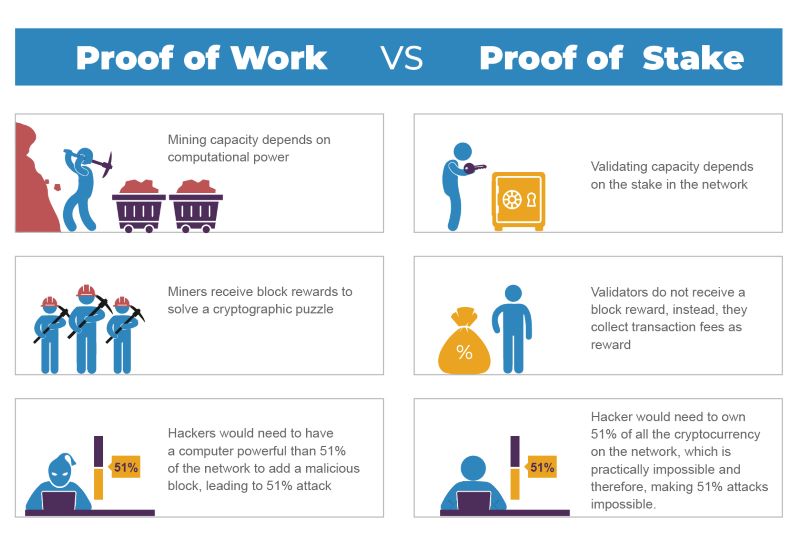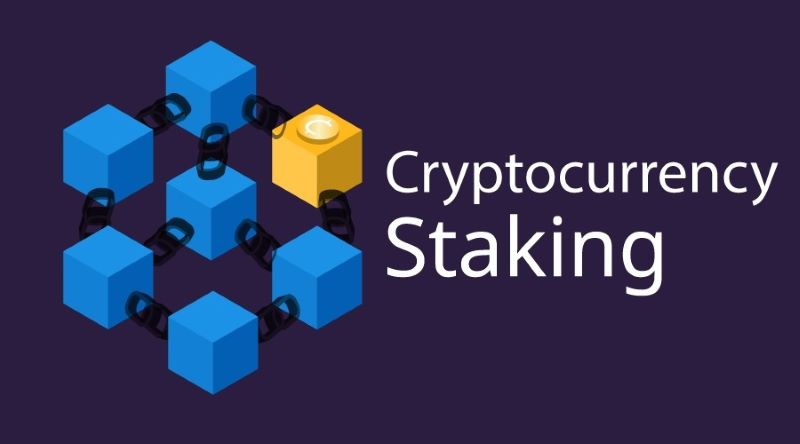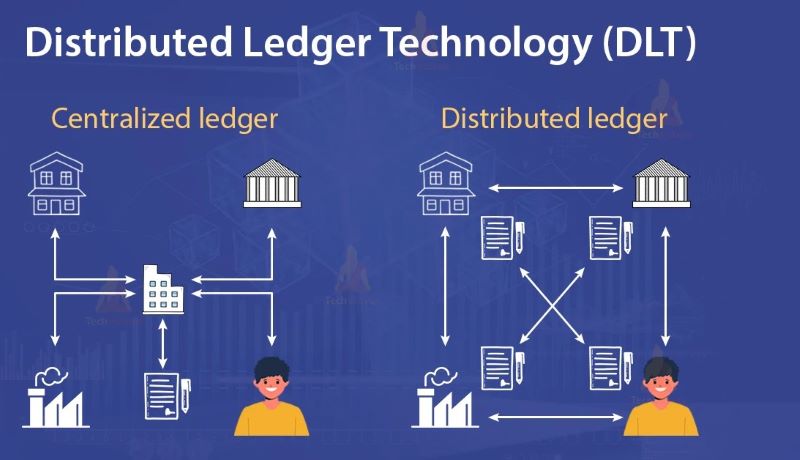Welcome to the forefront of blockchain innovation, where what is delegated proof of stake in crypto is reshaping the industry. It’s a game-changer, offering speed and efficiency beyond old methods. No more guessing or complexities. Here we break down the nitty-gritty of Delegated Proof of Stake (DPoS) and why it’s turning heads. Get ready to dive into a system that’s not just fast but also fair, where every stake counts and democracy reigns. Strap in for a crystal-clear explanation, as we explore how this clever protocol is revolutionizing crypto consensus, one block at a time.
Understanding Delegated Proof of Stake: The Basics
What is Delegated Proof of Stake (DPoS)?
Think of DPoS as a club where members choose a few to run things. In crypto, it’s a way to keep the ledger true without huge power costs. People with the system’s coins get a say in who’s in charge. These folks are called delegates. They take care of the blockchain’s security and order. Everyone in the network has a part to play, and it all starts with a vote.
In DPoS, your coins equal your voting power. You don’t need to be rich to join in. Even with a few coins, you can have a voice. These votes select a small group, called witnesses or block producers. They do the heavy lifting of processing transactions.
Now, why should this matter to you? Because it’s how the system stays fair, fast, and avoids getting stuck. It’s a team effort with big benefits – more on that soon.
Core Differences Between DPoS, PoW, and PoS Consensus Mechanisms
Got it, so what makes DPoS stand out from other types of systems? Let’s compare it with two others – Proof of Work (PoW) and Proof of Stake (PoS). These are different ways to agree on the blockchain’s state.
PoW is like a math race where computers solve hard puzzles. The first to finish gets to add to the chain but uses lots of energy. DPoS doesn’t need such heavy lifting. Instead, it uses that vote I mentioned to keep things moving.

PoS is closer to DPoS. In PoS, your coin amount helps secure the network. But, instead of racing or voting, it’s more like a lottery. The more coins you lock up as a stake, the better your chances of being chosen to add to the chain.
Now, DPoS brings in the best of both worlds. It allows everyone to take part and uses less energy than PoW. It also has that voting system to pick who’s in charge. This gives it a unique flavor in the crypto space. It can be quicker than PoS and votes help prevent any one person from getting too much power.
DPoS runs on a foundation of trust—trust in the delegates and the system. That’s why people who join want to keep everything top-notch. It’s like picking the best player in a sports team to score goals. You want someone who won’t drop the ball, literally.
The beauty of DPoS is it’s built for speed. It deals with transactions faster than both PoW and PoS systems.
In DPoS, blocks come out in a steady flow, thanks to witness work. They ensure that the blockchain is snappy and secure – a double win! This speed also means lower fees for users. Everyone loves saving money, right?
That’s a quick peek at DPoS – how it works, shines, and how it differs from its cousins in the crypto world. This system has its fans because it’s fast, thrifty with energy, and democratizes decision-making in the world of crypto. Got more questions on DPoS, staking, or crypto stuff? Fire away, and let’s dive deeper!
The Role of Stakeholders in DPoS Systems
The Importance of Crypto Governance Models
In Delegated Proof of Stake, or DPoS, everyone has a part to play. Think of it like a team sport – the better the players work together, the better the game goes. In this game of crypto, the team includes people who own tokens, and their main job is to vote. They pick the players, known as delegates, who they think will do the best job.
These delegates have power, but it comes from token holders. If token holders don’t like how delegates do their job, they can vote them out – just like a real election. It’s all about making sure everyone has a say in how things work. That’s what we call good crypto governance – and it’s key in making sure the crypto world is fair and runs well.
Block Producers Selection and Influence of Delegates
Block producers are like the star players in DPoS. They are the ones who make sure new blocks of transactions join the blockchain. People with tokens vote to choose these producers. But, not everyone who wants to be a producer gets to be one. Only the top ones, with the most votes, make the cut.
Delegates have a big say too. They can help make important decisions on the network. Think of them as team captains. The work includes making big changes, like updates to how the network runs or figuring out where money should go.
But here’s where it gets interesting – delegates don’t always get to use their own power. They might need to follow what the token holders want. This keeps things balanced and makes sure no one has too much control. Plus, it helps keep the network safe and running smoothly. This way, DPoS can be faster and use less energy than other systems, like PoW or PoS.
We also look out for things that can go wrong. There’s always a risk, but if we keep an eye on how votes are cast and who’s in charge, we can keep the network on the right track.
DPoS is like a democracy for crypto. It lets lots of people have a say and rewards them for taking part. Remember, it’s important to be smart about who you vote for! The health of the whole system depends on the choices we all make.
Staking Strategies and Rewards in DPoS
Optimizing Passive Income Through Effective Staking
Staking in cryptocurrency isn’t just a buzzword; it’s a way to earn money just by holding coins. Think of it like getting interest from a bank, but often with more bucks for your bang. In DPoS systems, it’s all about smart moves and making your coins work for you.
Start with choosing the right DPoS coin. Research is your friend here. Look for coins that have a solid team, a clear vision, and a vibrant community. Once you have your coins, it’s time to stake. This is where you lock up your coins for a while to support the network. In return, you get rewards.

Now, voting in DPoS isn’t just about having a say; it’s strategy. The more coins you hold, the louder your voice. You pick block producers who are the network’s caretakers. Good choices mean a stronger, more stable network and better rewards for you.
It’s not just set and forget, though. Keep an eye on things. Are your chosen producers doing a good job? Are they reliable and honest? Your income depends on their performance. So, keep tabs on them and shake things up if needed.
The key here is balance. Don’t put all your coins in one basket. Spread them across various producers to spread the risk. And remember, patience is a virtue in crypto. The longer you stake, the more you make. So, buckle up for the long haul to maximize your gains.
Witness Nodes and Their Compensation
A crypto network needs watchful eyes. That’s where witness nodes come in. They’re like the referees in a game, making sure everything runs smooth. For their hard work, they get paid in crypto, and this is serious business.
Witness nodes do more than just watch. They validate transactions, keep the network ticking, and are key players in network security. They’re chosen by token holders, so being a top-notch witness is a must for getting picked. They’ve got to be fast, reliable, and able to handle whatever comes their way.
Remember, witness rewards aren’t charity; they’re earned. A witness node’s pay reflects how much they contribute to the network. More work and better service can mean more pay. It’s like any job – do it well, and the rewards will follow.
To wrap it up, being smart with staking and keeping a close eye on those witness nodes can turn your DPoS adventure into a rewarding journey. So, dive into the world of staking and start making those coins work for you!
Advancing Blockchain Technology with DPoS
Enhancing Transaction Speed and Reducing Fees
Think of DPoS as a turbo boost for crypto transactions. Unlike traditional methods, DPoS in blockchain lets transactions fly at top speeds. This is huge for anyone tired of slow transactions. Low fees are also a big deal. Why? Because they make trading and using crypto cheaper for everyone. When block producers are picked, they keep the blockchain buzzing without costing us an arm and a leg.
Delegated Proof of Stake Explained
I can explain delegated proof of stake like picking a team. Imagine you have tokens, like game points. You can use them to vote for a group of folks called delegates. These top-notch delegates help run the place, so your coin gets a say in how things are done. It’s all about giving power to the token holders and keeping things smooth and safe.

DPoS versus PoW and DPoS versus PoS
Now, you might wonder how DPoS stacks up against Proof of Work (PoW) or Proof of Stake (PoS). Well, it’s like having a pro do the hard work instead of you trying to figure it all out alone (PoW) or just saving up your coins to get a chance to participate (PoS). DPoS lets you use your coins to vote for pros that handle the hard stuff. It’s team work at its finest.
Blockchain Voting Systems and Network Security in DPoS
A cool part about DPoS is the blockchain voting systems. They’re key to keeping things safe. By voting, you’re like a guardian of the network. Pick the right block producers and you help keep the bad guys out. This makes the network stronger and protects your digital treasure.
The Future of DPoS: Scalability and Environmental Sustainability
Thinking ahead, DPoS’s power could change how we use crypto at scale. It’s built to handle loads of transactions as more folks jump on board. And the energy efficiency? It’s miles ahead of old-school ways that chug down power like there’s no tomorrow. DPoS uses just a sip, making it a green dream come true for our planet.
DPoS Scalability and DPoS Benefits
Scalability in DPoS means it’s ready to grow. It can handle more action without breaking a sweat. What’s more? The perks — we’re talking quicker trades, leaner fees, and a system that’s tough as nails. It’s built to last, even when everyone and their mom start using crypto.
Energy Efficiency of DPoS
On energy, DPoS is like switching from a gas guzzler to a slick electric ride. It uses way less juice, tearing down electricity bills and being kinder to our blue marble. That’s a win for our wallets and for Mother Earth. It’s the kind of tech fix we need if we want to keep our planet cool and crypto hot.
In short, DPoS is not just a tool; it’s a game-changer. Imagine crypto moving at lightning speed with more cash in your pocket. Imagine us all making those big decisions together, shaping a safer, greener digital world. That’s the promise DPoS holds, and I’m here for it. Are you?
We’ve explored the Delegated Proof of Stake, or DPoS. It’s a fresh way to secure crypto networks, different from Proof of Work and Proof of Stake. In DPoS, folks with crypto tokens pick leaders to verify transactions. These leaders are called block producers.
We also dived into how big a role you play as a stakeholder. Your votes steer the direction of the crypto world. Pick the right block producers and the whole network can hum along smoothly.
Let’s not forget the gains. Staking your tokens well can keep your digital wallet happy. If you’re tech-savvy, you might even run a witness node to earn more.
Thinking ahead, DPoS has legs. It’s fast, goes easy on your pocket, and it’s kinder to our planet. It might just be the boost blockchain needs to really take off.
Keep an eye on this space. We’re on the brink of a slick, green future in crypto, all thanks to systems like DPoS.
Q&A :
What Exactly is Delegated Proof of Stake in Cryptocurrency?
Delegated Proof of Stake, or DPoS, is a consensus mechanism used in blockchain networks to secure the system and validate transactions. Unlike traditional Proof of Stake (PoS), DPoS allows token holders to cast votes proportional to their stake to elect a fixed number of “delegates”. These delegates are responsible for validating transactions and creating new blocks, thereby maintaining the blockchain’s integrity and performance.
How Does Delegated Proof of Stake Differ from Proof of Work?
DPoS is distinct from Proof of Work (PoW), the original consensus algorithm used by networks like Bitcoin, in that it is designed to be more energy-efficient and democratic. PoW requires miners to solve complex mathematical puzzles, consuming large amounts of energy, whereas DPoS relies on elected delegates to validate transactions, which requires significantly less power. Additionally, DPoS enables faster transaction processing and can be more resistant to centralization.
Can You Earn Rewards Through Delegated Proof of Stake?
Yes, users can earn rewards in DPoS systems by participating either as delegates or by voting for delegates with their stake. Delegates typically share a portion of the block rewards they receive with their voters, incentivizing users to participate in the voting process and support the network’s security and efficiency.
Is Delegated Proof of Stake Secure?
DPoS is considered secure due to the democratic nature of electing delegates and the incentive structure which encourages delegates to act honestly. However, the security relies on the active involvement of token holders in the voting process and the distribution of stake across a wide range of users to prevent centralization of control.
What Cryptocurrencies Use Delegated Proof of Stake?
Many cryptocurrencies have adopted DPoS because of its energy efficiency and scalability benefits. Notable examples include EOS, Tron, and Lisk. Each of these platforms has implemented DPoS with their own set of rules and governance structures tailored to the needs of their specific network.


